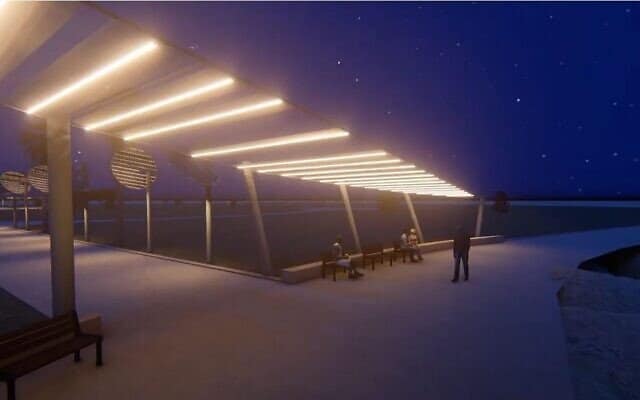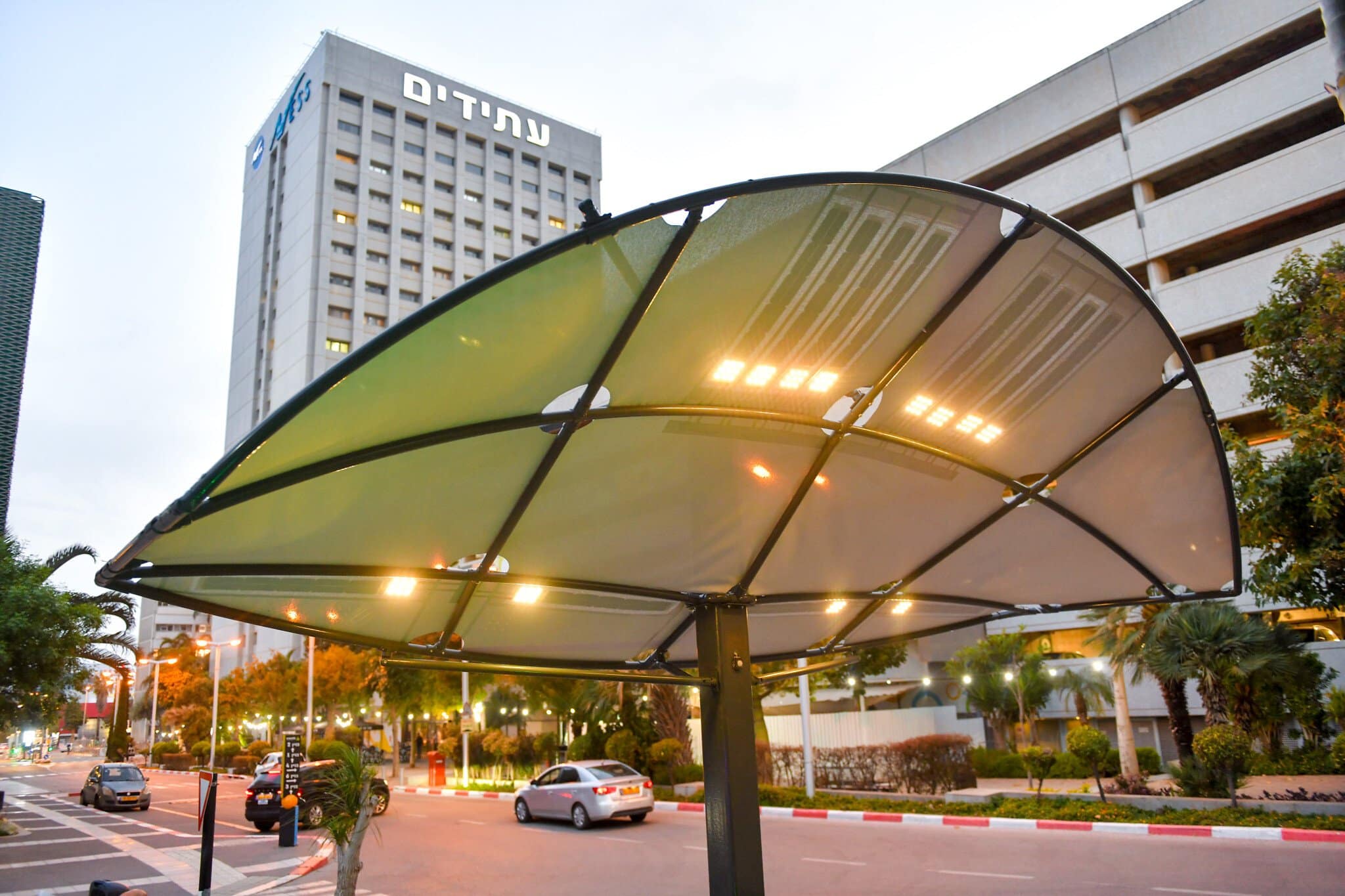In Tel Aviv, in the Atidim city park, a new ecological system is being tested, a sort of “solar-powered fabric” that will provide shade during the day and serve as a lighting installation after sunset.
The system, called Lumiweave, was created by Anai Green, an Israeli industrial designer who has obtained international recognition for having conceived an interesting environmentally friendly technology. The challenge was organized by Women4Climate, an organization that brings together mayors, entrepreneurs, innovators, students, scientists and activists to strengthen women's participation and leadership in building a sustainable future.
A solar fabric

Over the next few months, Green and the Tel Aviv municipality will monitor the system's performance in anticipation of doing more installations across the city. It is a unique project that addresses the problem of shading in urban areas with a technology that also adds the intelligent use of renewable energies.
Lumiweave's soft fabric incorporates organic photovoltaic (PV) solar cells to shade (and especially light) off-grid. It could have a thousand applications, from autonomous umbrellas to private canopies and roofs.
As you can imagine, the system does not require electrical infrastructures: even without the sun it can provide three days of night lighting. It won't be a problem for Tel Aviv (nor for Israel in general): the city enjoys a lot of sunshine, as many as 300 days a year.
This solar fabric would make the fortune of Southern Italy.
Tel Aviv, not just technology
The adoption of this solar fabric is neither the only nor the latest initiative of the Israeli city. Tel Aviv is rapidly establishing itself as the world's leader in climate protection - including an ambitious plan for planting 450.000 trees in urban areas: will provide shade to cool temperatures. Over 700 million euros for a goal to be achieved by 2040.
In such an interesting context, Lumiweave technology is also an environmental 'fabric' in name and in fact.


